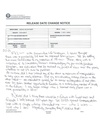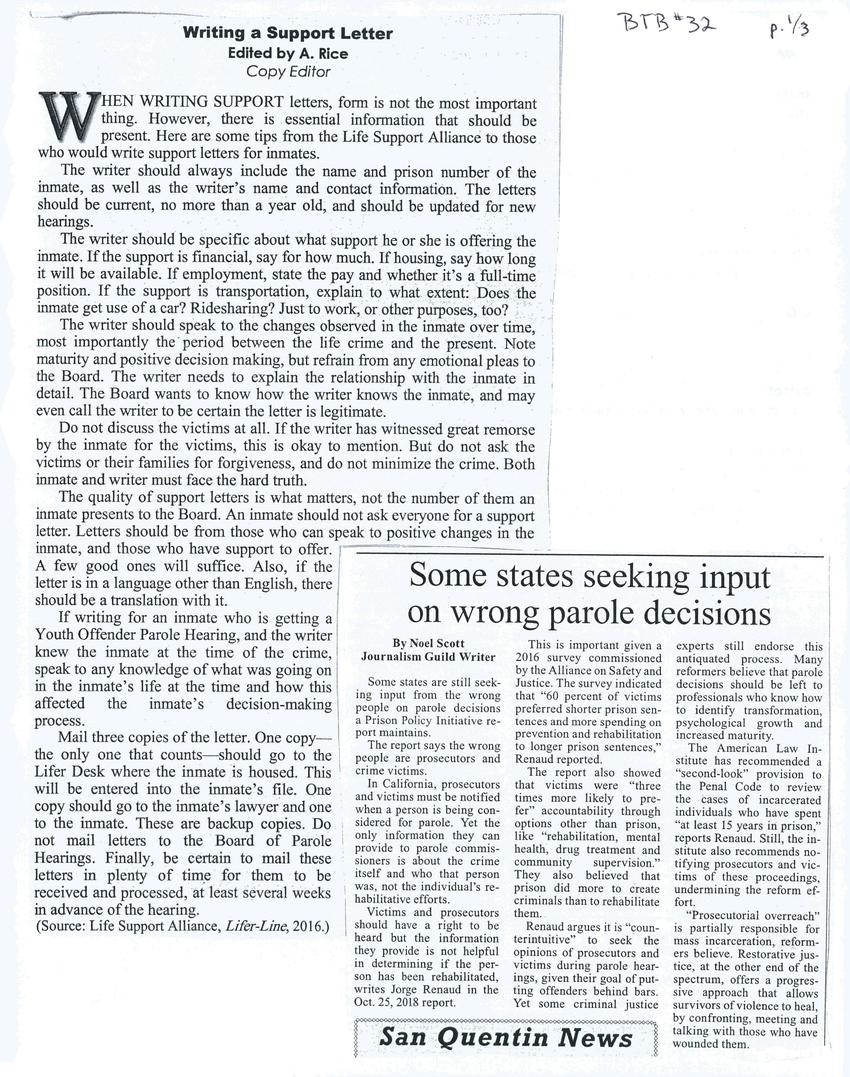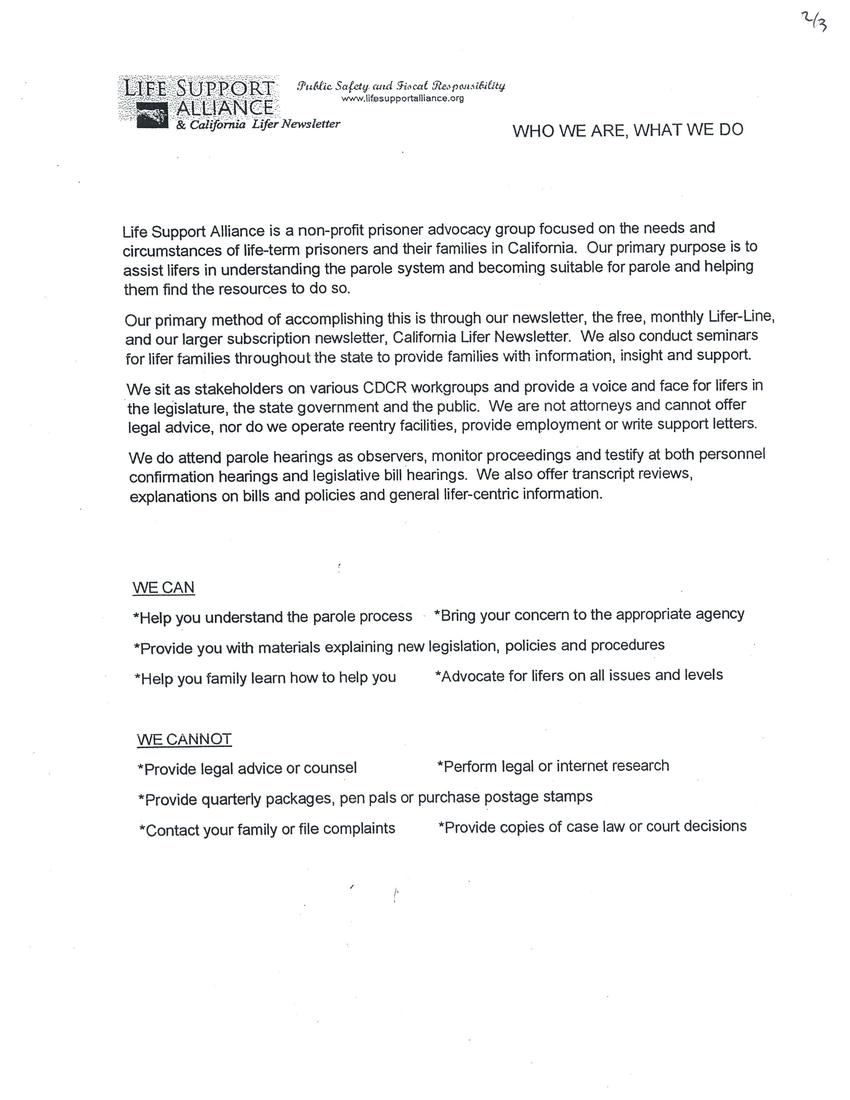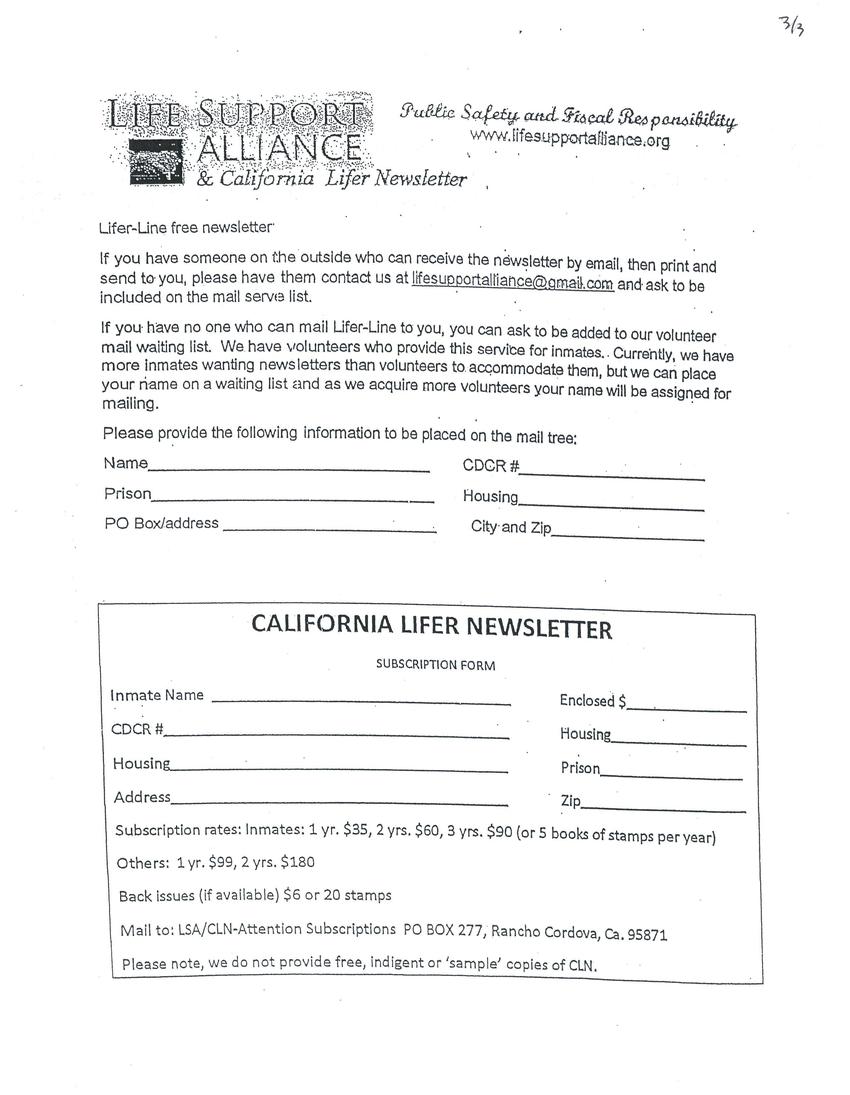
Transcription
BTB #32
Writing a Support Letter
Edited by A. Rice
Copy Editor
When writing support letters, form is not the most important thing. However, there is essential information that should be present. Here are some tips from the Life Support Alliance to those who would write support letters for inmates.
The writer should always include the name and prison number of the inmate, as well as the writer's name and contact information. The letters should be current, no more than a year old, and should be updated for new hearings.
The writer should be specific about what support he or she is offering the inmate. If the support is financial, say for how much. If housing, say how long it will be available. If employment, state the pay and whether it's a full-time position. If the support is transportation, explain to what extent: Does the inmate get use of a car? Ridesharing? Just to work, or other purposes, too?
The writer should speak to the changes observed in the inmate over time, most importantly the period between the life crime and the present. Note maturity and positive decision making, but refrain from any emotional pleas to the Board. The writer needs to explain the relationship with the inmate in detail. The Board wants to know how the writer knows the inmate, and may even call the writer to be certain the letter is legitimate.
Do not discuss the victims at all. If the writer has witnessed great remorse by the inmate for the victims, this is okay to mention. But do not ask the victims or their families for forgiveness, and do not minimize the crime. Both inmate and writer must face the hard truth.
The quality of support letters is what matters, not the number of them an inmate presents to the Board. An inmate should not ask everyone for a support letter. Letters should be from those who can speak to positive changes in the inmate, and those who have support to offer. A few good ones will suffice. Also, if the letter is in a language other than English, there should be a translation with it.
If writing for an inmate who is getting a Youth Offender Parole Hearing, and the writer knew the inmate at the time of the crime, speak to any knowledge of what was going on in the inmate's life at the time and how this affected the inmate's decision-making process.
Mail three copies of the letter. One copy - the only one that counts - should go to the Lifer Desk where the inmate is housed. This will be entered into the inmate's file. One copy should go to the inmate's lawyer and one to the inmate. These are backup copies. Do not mail letters to the Board of Parole Hearings. Finally, be certain to mail these letters in plenty of time for them to be received and processed, at least several weeks in advance of the hearing.
(Source: Life Support Alliance, Lifer-Line, 2016.)
Some states seeking input on wrong parole decisions
By Noel Scott
Journalism Guild Writer
Some states are still seeking input from the wrong people on parole decisions, a Prison Policy Initiative report maintains.
The report says the wrong people are prosecutors and crime victims.
In California, prosecutors and victims must be notified when a person is being considered for parole. Yet the only information they can provide to parole commissioners is about the crime itself and who that person was, not the individual's rehabilitative efforts.
Victims and prosecutors should have a right to be heard but the information they provide is not helpful in determining if the person has been rehabilitated, writes Jorge Renaud in the Oct. 25, 2018 report.
This is important given a 2016 survey commissioned by the Alliance on Safety and Justice. The survey indicated the "60 percent of victims preferred shorter prison sentences and more spending on prevention and rehabilitation to longer prison sentences", Renaud reported.
The report also showed that victims were "three times more likely to prefer" accountability through options other than prison, like "rehabilitation, mental health, drug treatment and community supervision." They also believed that prison did more to create criminals than to rehabilitate them.
Renaud argues it is "counterintuitive" to seek the opinions of prosecutors and victims during parole hearings, given their goal of putting offenders behind bars. Yet some criminal justice experts still endorse this antiquated process. Many reformers believe that parole decisions should be left to professionals who know how to identify transformation, psychological growth and increased maturity.
The American Law Institute has recommended a second-look provision to the Penal Code to review the cases of incarcerated individuals who have spent "at least 15 years in prison", reports Renaud. Still, the institute also recommends notifying prosecutors and victims of these proceedings, undermining the reform effort.
"Prosecutorial overreach" is partially responsible for mass incarceration, reformers believe. Restorative justice, at the other end of the spectrum, offers a progressive approach that allows survivors of violence to heal, by confronting, meeting and talking with those who have wounded them.
San Quentin News
LIFE SUPPORT ALLIANCE & California Lifer Newsletter
Public Safety and Fiscal Responsiblity
www.lifesupportalliance.org
WHO WE ARE, WHAT WE DO
Life Support Alliance is a non-profit prisoner advocacy group focused on the needs and circumstances of life-term prisoners and their families in California. Our primary purpose is to assist lifers in understanding the parole system and becoming suitable for parole and helping them find the resources to do so.
Our primary method of accomplishing this is through our newsletter, the free, monthly Lifer-Line, and our larger subscription newsletter, California Lifer Newsletter. We also conduct seminars for lifer families throughout the state to provide families with information, insight and support.
We sit as stakeholders on various CDCR workgroups and provide a voice and face for lifers in the legislature, the state government and the public. We are not attorneys and cannot offer legal advice, nor do we operate reentry facilities, provide employment or write support letters.
We do attend parole hearings as observers, monitor proceedings and testify at both personnel confirmation hearings and legislative bill hearings. We also offer transcript reviews, explanations on bills and policies and general lifer-centric information.
WE CAN
* Help you understand the parole process
* Bring your concern to the appropriate agency
* Provide you with materials explaining new legislation, policies and procedurs
* Help your family learn to help you
* Advocate for lifers on all issues and levels
WE CANNOT
* Provide legal advice or counsel
* Perform legal or internet research
* Provide quarterly packages, pen pals or purchase postage stamps
* Contact your family or file complaints
* Provide copies of case law or court decisions
Lifer-Line free newsletter
If you have someone on the outside who can receive the newsletter by email, then print and send to you, please have them contact us at lifesupportalliance@gmail.com and ask to be included on the mail serve list.
If you have no one who can mail Lifer-Line to you, you can ask to be added to our volunteer mail waiting list. We have volunteers who provide this service for inmates. Currently, we have more inmates wanting newsletters than volunteers to accommodate them, but we can place your name on a waiting list and as we acquire more volunteers your name will be assigned for mailing.
Please provide the following information to be placed on the mail tree:
Name
CDCR#
Prison
Housing
PO Box/address
City and Zip
CALIFORNIA LIFER NEWSLETTER
SUBSCRIPTION FORM
Inmate Name
Enclosed $
CDCR #
Housing
Prison
Address
Zip
Subscription rates: Inmates: 1 yr. $35, 2 yrs. $60, 3 yrs. $90 (or 5 books of stamps per year)
Others: 1 yr. $99, 2 yrs. $180
Back issues (if available) $6 or 20 stamps
Mail to: LSA/CLN-Attention Subscriptions PO Box 277, Rancho Cordova, Ca. 95871
Please note, we do not provide free, indigent or 'sample' copies of CLN.
Other posts by this author
|
2023 may 31

|
2023 apr 5

|
2023 mar 19

|
2023 mar 5

|
2023 mar 5

|
2023 mar 5

|
More... |




Replies